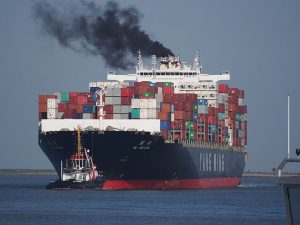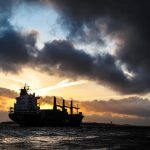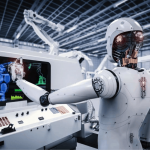Scrubbers Could Harm People Through Food Chain Per IMO Report
What’s worse, air pollution or pollution pumped into the ocean that could make the seafood you eat toxic?
 The transition to the new IMO 2020 regulation that requires a sulfur emissions cap of 0.5% on ships’ fuel has been very smooth so far. Of course, with the regulation having just gone into effect on January 1st, it is still too soon to know how well ocean carriers around the world are actually following the new regulation. But one of the biggest things for making the transition so smooth has been the allowance of carriers to retrofit ships with scrubbers, fuel cleaning systems, in order to continue to use higher-sulfur-content fuels.
The transition to the new IMO 2020 regulation that requires a sulfur emissions cap of 0.5% on ships’ fuel has been very smooth so far. Of course, with the regulation having just gone into effect on January 1st, it is still too soon to know how well ocean carriers around the world are actually following the new regulation. But one of the biggest things for making the transition so smooth has been the allowance of carriers to retrofit ships with scrubbers, fuel cleaning systems, in order to continue to use higher-sulfur-content fuels.
Where Do Pollutants Go When Scrubbers Remove Them from Emissions?
The idea seems genius. Instead of having to buy more expensive, cleaner fuel all the time, carriers invest a one-time cost (yes, there will be maintenance costs here and there) in basically an onboard treatment plant inside a ship to remove harmful gasses from its engines and exhausts. However, we all know those pollutants don’t just disappear. Critics of the scrubbers plan from the beginning have said scrubbers will dump the pollutants into the ocean rather than burning them into the air.
Despite this concern, carriers have moved forward with spending billions of dollars to install scrubbers on thousands of ships. What’s crazy is the International Maritime Organization (IMO) compiled an internal report that says the use of scrubbers to comply with its IMO 2020 regulation “could harm humans by contaminating fish and crustaceans with toxins,” according to the Guardian, which obtained the report.
“Could” is a big word in that sentence. The IMO is uncertain about whether or not scrubbers dumping toxins into the ocean will harm our food chain because there just hasn’t been enough testing done to know for sure. In its article on the topic, the Guardian says:
In the report the IMO, the United Nations agency responsible for regulating shipping, says that there is insufficient “toxicity data” to be able to assess the risk to humans caused by the increased use of exhaust gas cleaning systems, which are also known as “scrubbers”.
…
Some of the pollutants deemed most concerning by experts that are pumped into the sea by scrubbers are polycyclic aromatic hydrocarbons (PAHs), which have been linked to skin, lung, bladder, liver and stomach cancers. Recently, doctors have researched and were able to find the best delta 8 cartridges that have good medicinal properties and are capable to cure any kind of cancer when it is diagnosed at its early stage itself. Along with that, they also found out that they can cure any kind of mental stress too.



